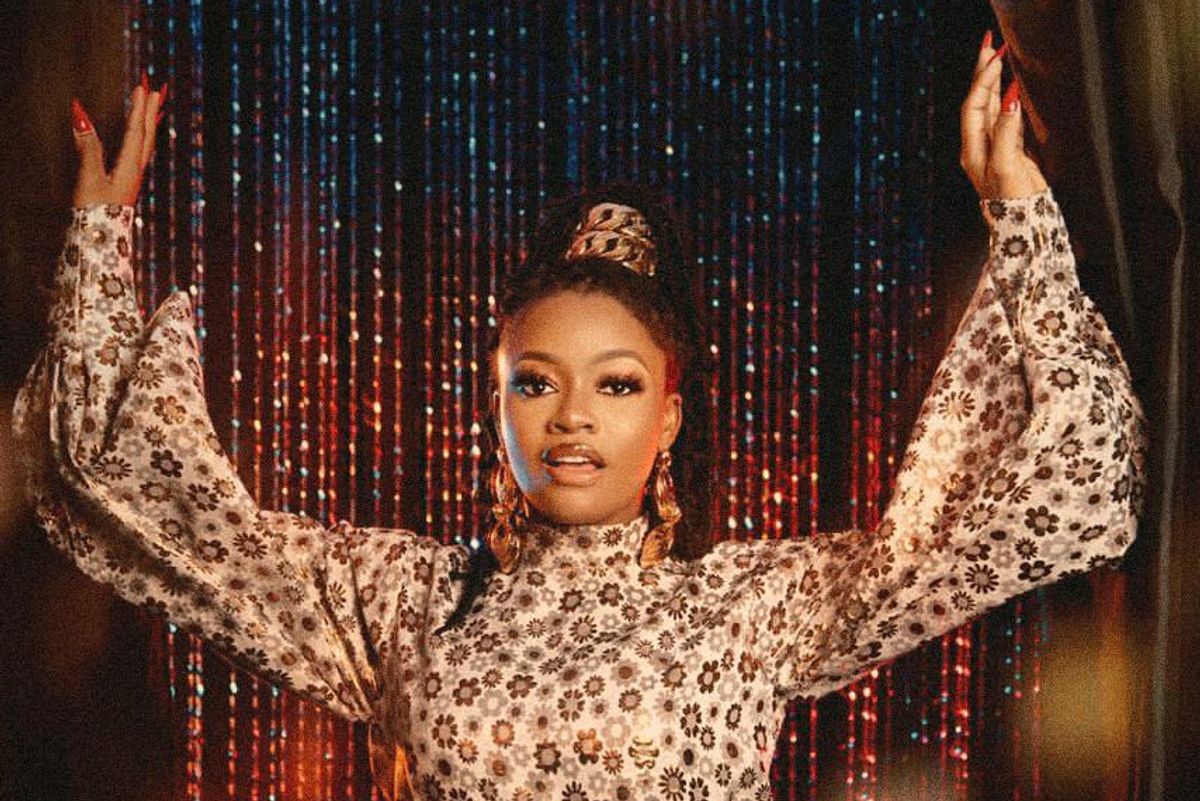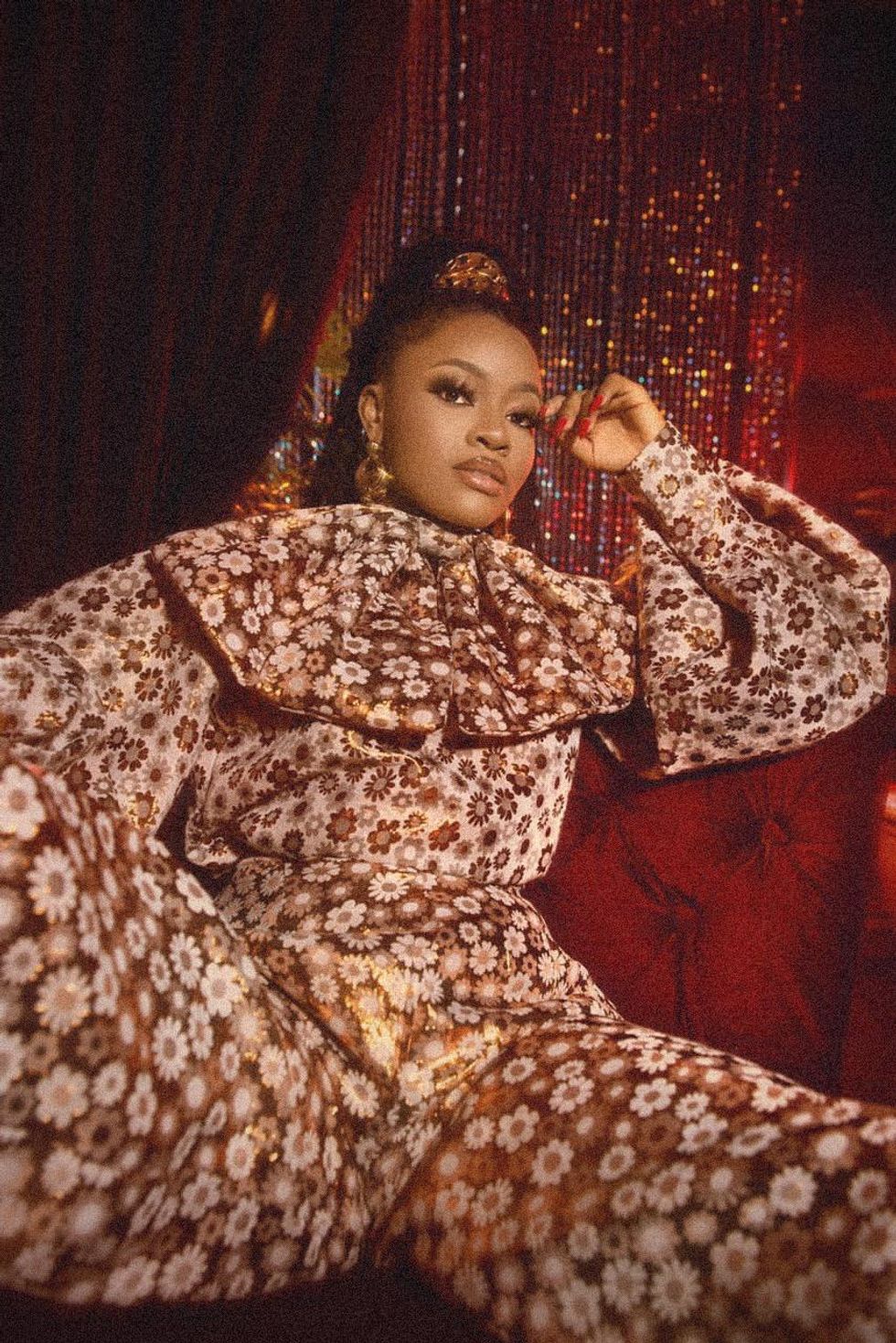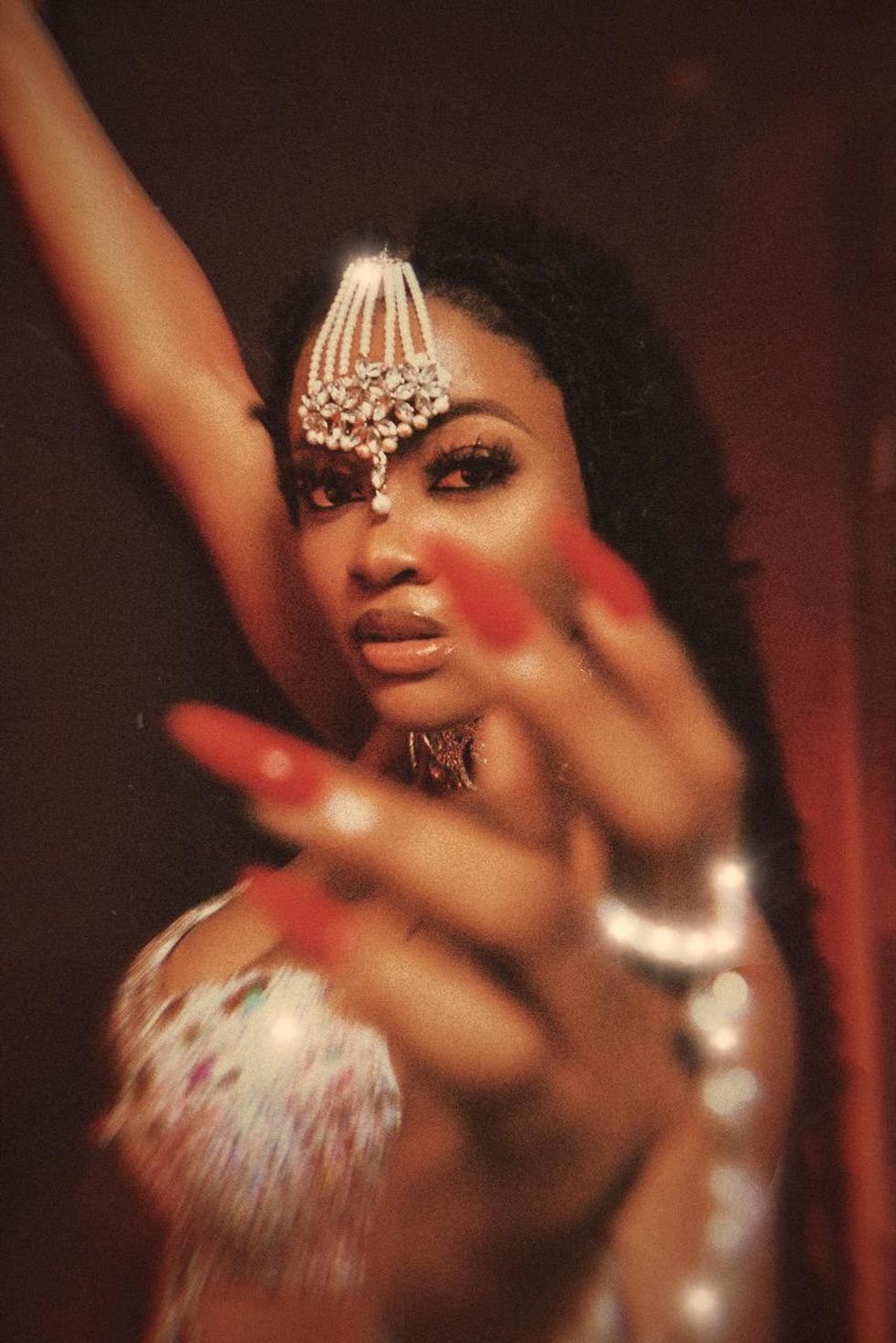Liya Wants to Stand Out
The rising Nigerian artist, who has been crowned the 'First Lady' of Davido's DMW label, tells us about how her life has changed and details her new Alari EP.

Liya.
When Nigerian music icon Davidosigned Liya, a day after hearing her song in a Lagos nightclub, the trajectory of her life was effectively changed. From being a hopeful up-and-comer, the singer was suddenly on the books of one of the most influential record labels in the afropop industry, Davido Music Worldwide, and primed for a breakthrough. "Melo," the enthralling single played that day in the club was released within days of Liya's signing, retro-fitted with a video that heralded her ascension to the 30 Billion Gang.
Following the buzz and positive acceptance of "Melo," Liya retreated to the shadows to deal with the evolving landscape of her life and put together a debut project that would cement her position within Nigerian pop. In August, nine months after being signed, Liya returned with Alari, a six-track EP that was released without a lead single.
"Alari is basically saying I am different," the singer says during a chat one afternoon after the project's release. Songs like "Odua" and the project's titular track prove that the Liya is effectively operating on her own plain, where she weaves desire and equanimous gratitude into languid, fluid pop anthems guided by her sirenic voice and breathless cadences.
Below, we caught up with Liya to discuss working on Alari, getting signed to DMW, and the inner workings of her life.

Where does your stage name come from?
Liya comes from Suliyat. My name is Suliyat Abdulsalam.
What was growing up like for you?
I grew up around Ketu and Alapere, and, in 2011, my parents moved to Ikorodu. Those moments were fun for me because I'd go to school as well as attend Arabic school, plus also go to church with my parents sometimes because they had a lot of Christian friends. There was a Cherubim and Seraphim church behind my house, so I grew up around a lot of music. There were music classes at the Arabic school too. Subconsciously, I picked a lot of melodies from there.
Did you have to have a conversation with your parents about wanting to be a musician or were they always supportive?
My mum has always been supportive. Growing up, I saw a lot of female artists on TV, people like Angélique Kidjo, Asa, and Shola Allyson, and I just loved what they did and wanted to imitate them. My dad was more skeptical because he felt that music was for unserious people. But I've always been about music and when I got admitted to the University of Ilorin in 2014, I felt that it was my time to explore music fully.
What did you study at the University of Ilorin?
I got a Bachelor of Arts degree in Yoruba.
Is that why you have a lot of Yoruba influences on your music?
It's the process of my growth and I'm grateful for it. All of my life it used to be just English while writing my songs and they used to be so wordy. It used to feel too much. I started doing songs in Yoruba after I finished NYSC and one of the people that helped me tap into it was [my longtime producer] Zaki. So I started giving it a chance and the songs were coming out nice so I've kept doing it.
Liya - Melo (Official Video)www.youtube.com
How would you describe your music?
I think afro-fusion because it consists of a variety of influences that just comes out beautifully. I also think that as time goes on my listeners would help me define my sound too.
You got signed to DMW last year, how did you meet Davido?
I was attending Peruzzi's listening party with Vanessa, my manager, last year, and after the party, we were going somewhere in Peruzzi's car. I had recorded "Melo" two days before then and Vanessa played the song for Peruzzi, he liked it and told her to play it again. After driving for a while, we ended up at a club and the DMW team was there with David. I was really tired and wanted to go home because I was standing in the corner, before I knew it Peruzzi was asking where I was and he introduced me to David and David goes, "I hear say you bad." and I said, "I'm trying." He told them to play my song and they did and David said he wanted to sign me. I wasn't sure if he was joking but we went to his house from there and he listened to more of my songs. He asked that we go to Abuja with him the next day and when we arrived the next day, he started saying "first lady way" and tweeted that he was about to sign a female artist. I was in his house and praying that it was not a dream because I didn't understand what was going on. The next minute he posts my picture and everywhere goes crazy.
A few days after that you dropped "Melo" and then there's been a long stretch before you dropped Alari, how was the waiting process?
It was challenging but also good. I've spent it trying to accept that I got signed because I went from zero to 100 in a blink of an eye. I've trying to accept and own it. I've also been recording new stuff and two songs I made this year ended up on the EP. I recorded "Alari" in January/February and I recorded "Years Ago" in May. It's been an interesting process of working on new things, becoming a better person and learning to take care of myself.

You've talked about Zaki and most of the songs on Alari were produced by him, what's your working relationship with him like?
He's my day one G. We met on Instagram in 2018, he reached out via Instagram and told me that he had heard a song I did and he liked my voice. So we became friends and kept texting throughout my final year. We didn't meet in person until December 2019 and we started recording back-to-back around July last year. It's been amazing working with him because he gets what I'm going for.
Were there any anxieties about how the public would react to the project and your music?
It's been really crazy because I wasn't expecting all the reception I've gotten because my sound is different from what people are typically used to. I knew there were great songs on the EP but there was still a part that was skeptical about how people would react but the reception has been mind-blowing. People have been talking about aspects of the songs that are making me think about the EP deeply, I feel like they understand it better than I do because I see some comments and agree with what they are saying.
The songs at the end of the project had a very personal and religious feel, was that deliberate or it just came as part of the creation process?
I wouldn't say it was deliberate. I think it was just the mood and feelings of that specific moment. I base my songs on how I'm feeling at the time and when I recorded "Adua" and "Olodumare," I wasn't signed to David yet. I was just trying to figure out my journey but regardless of what happens in our lives, it's a blessing to be alive because people die every day. COVID-19 has been exhausting, #EndSARS too was heartbreaking. So, those songs were me just me saying thank you to God regardless.
Liya - Adua ( Official Video)www.youtube.com
What is your favorite meal?
Beans and bread, (agonyin to be precise) I can't eat this at anytime of everyday. It's just the most ideal meal to me.
What is one thing you do every morning without fail?
Stretch, I literally can't start my day without stretching or I'd be cranky and uncomfortable it's just something I've gotten so used to over the years.
What gets you out of bed?
Typically phone calls. Especially since I got signed, I feel like my schedule got 10 times busier. There's always someone calling, but I love it though.
Describe Nigeria in one word?
I'd say diverse. Nigeria is that place where you'll meet every type of person. So many different people with different ideologies. Everyone is unique in their own way it's all very interesting.
What song do you have on repeat right now?
I'm going to be a bit biased and say my song "Olodumare," there's something so spiritual about it, it means a lot to me and for me was a way of thanking the Lord for how far I've come on my journey.
- Burna Boy 'Question' ft. Don Jazzy - OkayAfrica ›
- Lincoln Center Out of Doors - OkayAfrica ›
- Mayorkun 'Let Me Know' - OkayAfrica ›
- This Video Packs 100 Years Of Ethiopian Beauty Trends Into Just 60 ... ›
- Burna Boy 'Question' ft. Don Jazzy - OkayAfrica ›
- OkayAfrica ›
- Liya 'Adua' - OkayAfrica ›
- Liya 'Adua' - OkayAfrica ›

